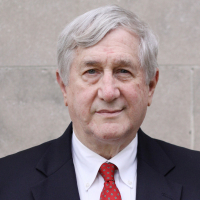Eden DUI-DWI Lawyer, Maryland
Sponsored Law Firm
-
 x
x

Click For More Info:
-
James E. Crawford, Jr. & Associates, LLC
999 Corporate Blvd. Suite 100 Linthicum, MD 21090» view mapCriminal Defense, Divorce & Family Law Move Forward With Confidence
Our Firm's team of family, criminal, and business lawyers understand that each case presents unique challenges and must be met with equally unique approaches.
800-789-9220
Not enough matches for Eden DUI-DWI lawyer.
Below are all Eden Criminal lawyers.
Harold Stanley Link
✓ VERIFIEDCriminal, Divorce & Family Law, Motor Vehicle, Accident & Injury, Wills & Probate
Owner and managing attorney of the Law Office of Harold S. Link, which has been affording quality legal services at an affordable price for more than ... (more)
Andrew M. MacDonald
Divorce & Family Law, White Collar Crime, DUI-DWI, Criminal, Bankruptcy
Status: In Good Standing
Wm A Lee Clarke
White Collar Crime, DUI-DWI, Criminal, Accident & Injury
Status: In Good Standing Licensed: 49 Years
John Kevin Phoebus
Divorce & Family Law, DUI-DWI, Criminal, Contract, Personal Injury
Status: In Good Standing
Luke Americus Rommel
Criminal, Corporate, Personal Injury
Status: In Good Standing Licensed: 20 Years
 James Crawford, Jr. Linthicum, MD
James Crawford, Jr. Linthicum, MD Practice AreasExpertise
Practice AreasExpertise

